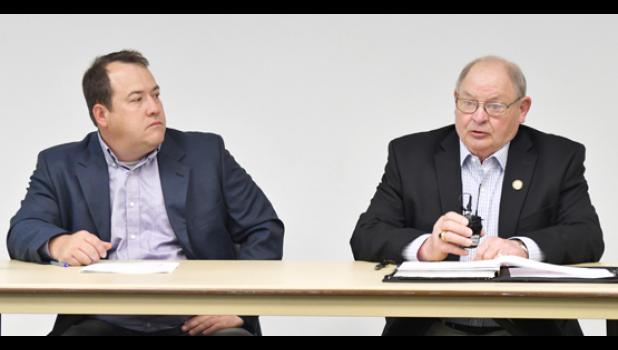Most tax increases abandoned
A brief special session took place after proposals to raise taxes by $12 billion caused budget talks to stall and no deal was in place when the Minnesota Legislature’s May 20 date for adjournment arrived.
State Rep. Chris Swedzinski, R-Ghent, indicated he was, “Pleased most of the tax increases proposed by Gov. Tim Walz and the House majority were struck down in the process of setting a new two-year state budget.”
“We were successful in getting them to drop most of their tax increases, including their push to raise the gas tax by 20 cents.
The one major exception is they did extend a tax on health care at a cost of more than $2 billion to Minnesotans.” “That was never realistic to raise taxes by $12 billion at a time the state has a $1 billion surplus and it just took time for the House majority and the governor to acknowledge that fact,” said Representative Swedzinski.
On Tuesday at their Town Hall meetings, Swedzinski and State Senator Gary Dahms (R-Redwood Falls) re-affirmed their stand that, “We came to a compromise on a deal that no one was excited about, but not totally disappointed in either”.
He was speaking about an agreement between the Democrats and Republicans. He went on to say, “This is the first time in 20 years we’ve been able to lower taxes for lower and middle income Minnesotans.”
Representative Swedzinski touted the 60 million dollars in legacy funds that the legislature was able to allocate through bonding to help pay for water treatment projects, including a project in Marshall. Questions from the audience covered a number of topics, including energy policy, federal tax conformity, gas taxes, education funding and several comments of appreciation for legislation that has benefited the region.
Swedzinski also pointed to mental health grants for farmers and $8 million to help dairy farmers cover the costs of a federal Margin Protection Plan insurance program as successes of the session.
The funding is directed toward smaller, family-type operations with fewer than 750 cows. An appropriation to provide mental health support for farmers was approved as well.
“We also spared nursing homes from the $68 million Democrats were looking to cut from them, which is a huge win for Greater Minnesota,” Swedzinski said.
“And, after so much resistance, Democrats finally agreed to extend the reinsurance plan we successfully created a couple of years ago to help get a handle on insurance premiums on the individual market.”
Swedzinski successfully brought to passage a bill that will help the Minneota School District rectify a funding shortage on a construction project by covering sales taxes on materials.
He also received approval for a bill allowing people to use night-vision equipment while hunting foxes and coyotes. The special session was called by the governor after days of closed-door meetings, and a “tribunal” comprised of the governor, the House speaker and the Senate majority leader.
Some conference committees did not adopt a single provision in a public setting, resulting in entire bills being decided behind closed doors.
The largest budget bill was not publicly released until several hours after the special session had begun.

